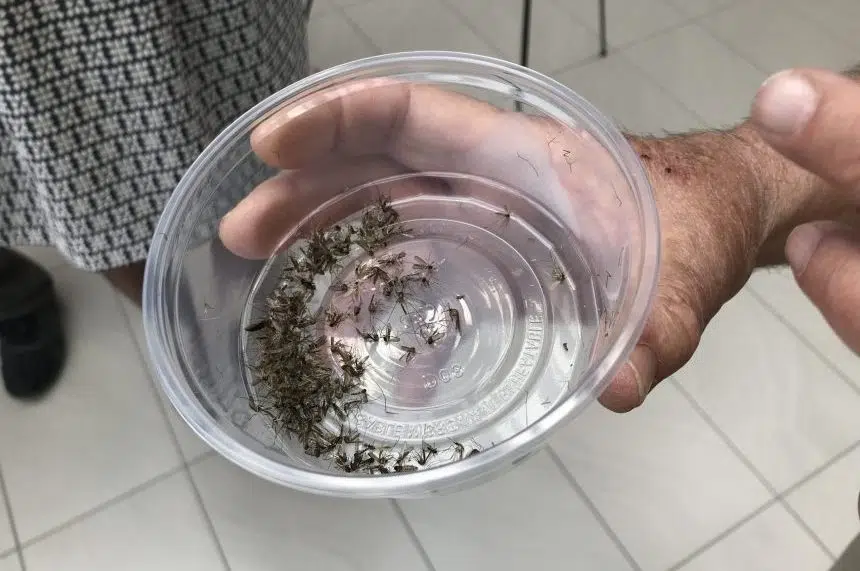While social distancing restrictions prohibit crowds of people from gathering outside, swarms of mosquitoes may become unwelcome guests in backyards this summer as the City of Regina scales back on its pest control program to save money.
“The city remains focused on ensuring that essential services are provided and we’re adjusting our other services and service levels as needed to respond to the COVID-19 pandemic,” said Ray Morgan, manager of parks and open space for the city.
“We had a number of services in our parks and open space area that we had a reduction in and the mosquito program is one of them.”
Last week city council voted to approve several cost-saving measures as recommended by the city administration. Those measures would help make up for revenue shortfalls predicted to be $12.1 million if COVID-19 restrictions end in June and as high as $20 million if they last until September.
At the end of March, the city laid off 350 casual employees and postponed the recall of 500 seasonal employees in order to save money.
According to information provided by a communications official with the city, the cost savings on casual staff salaries for park maintenance amount to $70,000 per week and the savings on the pest control program specifically will be between $25,000 and $35,000 per week.
Morgan explained the mosquito control program will be focused on monitoring mosquito populations through traps instead of applying a bacterial larvicide agent to standing bodies of water.
He said city crews normally would begin treating mosquito larvae in standing bodies of water in April or May depending on weather conditions. This year has been too cold to start monitoring for mosquitoes so far, but even when the weather warms up, the program will take a wait-and-see approach.
“Once we get that major rain event, we will have staff go out checking water bodies to check for larvae and that’ll give us a good sense of what is coming,” Morgan said. “If things should increase or we’re projecting increases, we’ll go back to our administration internally and make recommendations on what the next steps should be in order to address those populations.”
The mosquito control measures will focus on tracking populations of mosquitoes in traps, paying particular attention to watch for the species that can carry West Nile virus.
In addition to new limits on the mosquito control program, some of the maintenance services for athletic fields will be reduced to basic asset protection levels.
“I know as part of the essential services parks and maintenance area they’ve had a reduction to athletic fields and that’s only as a result of no play,” Morgan said.
With organized sports on indefinite hiatus during COVID-19, Morgan said the city can afford to reduce service levels on athletic fields, noting that they will likely be fertilized and aerated once or twice instead of three times this season.
City workers are also now restricted to one person per vehicle in order to follow safe social distancing regulations to prevent the spread of COVID-19. Morgan said cutting grass and other basic maintenance for parks and open spaces will go on at a level that’s close to normal this spring.







